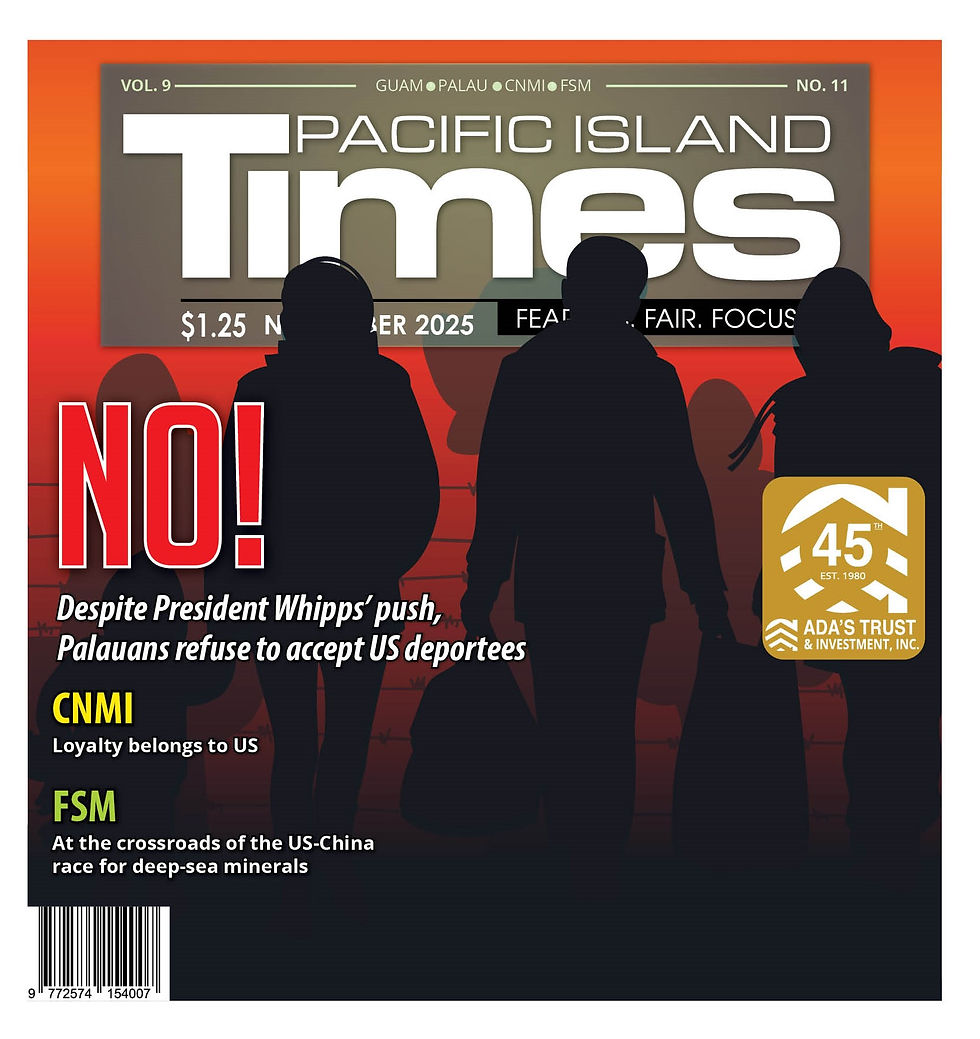Palau president eyes US deportees as a solution to labor shortage
- Admin

- Nov 6, 2025
- 2 min read
Updated: Nov 6, 2025

By Bernadette Carreon
Deportees from the United States could fill Palau’s labor gaps, President Surangel Whipps Jr. said, seeking to justify his apparent inclination to accept the Trump administration’s proposal to send its unwanted aliens to the Pacific island nation.
Whipps said under the current proposal, his administration would select deportees with specific skills Palau lacks, such as construction workers, nurses and other sectors facing workforce deficit.
"Converting from tourist visas to work permits is one possibility, but ideally we will have job placements (and the associated work permits) ready for these individuals before they arrive in Palau as we do for other migrant workers," Whipps said in response to questions from the Pacific Island Times.
Palau’s Congress, also known as the Olbiil Era Kelulau, and the Council of Chiefs have rejected the proposal twice.
Read related stories
When asked if accepting deportees requires legislative consent, Whipps pointed to Palau’s existing laws governing foreign labor.
"The acceptance of foreigners into Palau is already authorized under existing laws, and the executive branch routinely administers and processes the entry and employment of nonresident workers," he said.
While Whipps has created a working group, which includes legislators and chiefs, he hasn't committed to bringing any final agreement back to the Palau Congress for a vote.
Whipps emphasized that the proposal remains subject to negotiation.
"While there may be individual Chiefs or OEK members who do not want to entertain any further discussions, that is not the consensus," he said.
He stressed that "consensus and transparency" are being applied in the discussions, but remained ambiguous over whether legislative approval would be sought.
Critics have compared the proposal to Palau's 2009 acceptance of six Uyghur detainees from Guantanamo Bay, all of whom eventually left the country. Whipps argued this situation differs significantly.
"First, the Uyghurs came from Guantanamo after being arrested during the Afghanistan War and held there," he said. "Second, although President Obama's administration cleared them as 'enemy combatants,' Palau didn't have any say in who they would or wouldn't accept."
In contrast, he said, the current proposal gives Palau control over vetting and selection criteria.
"What we're doing now with the Working Group is setting clear parameters by asking what the Palauan people are comfortable with, identifying if there are particular individuals or requirements we want for those coming to Palau, and then sharing those standards with the U.S.,” Whipps said.

Subscribe to
our digital
monthly edition





